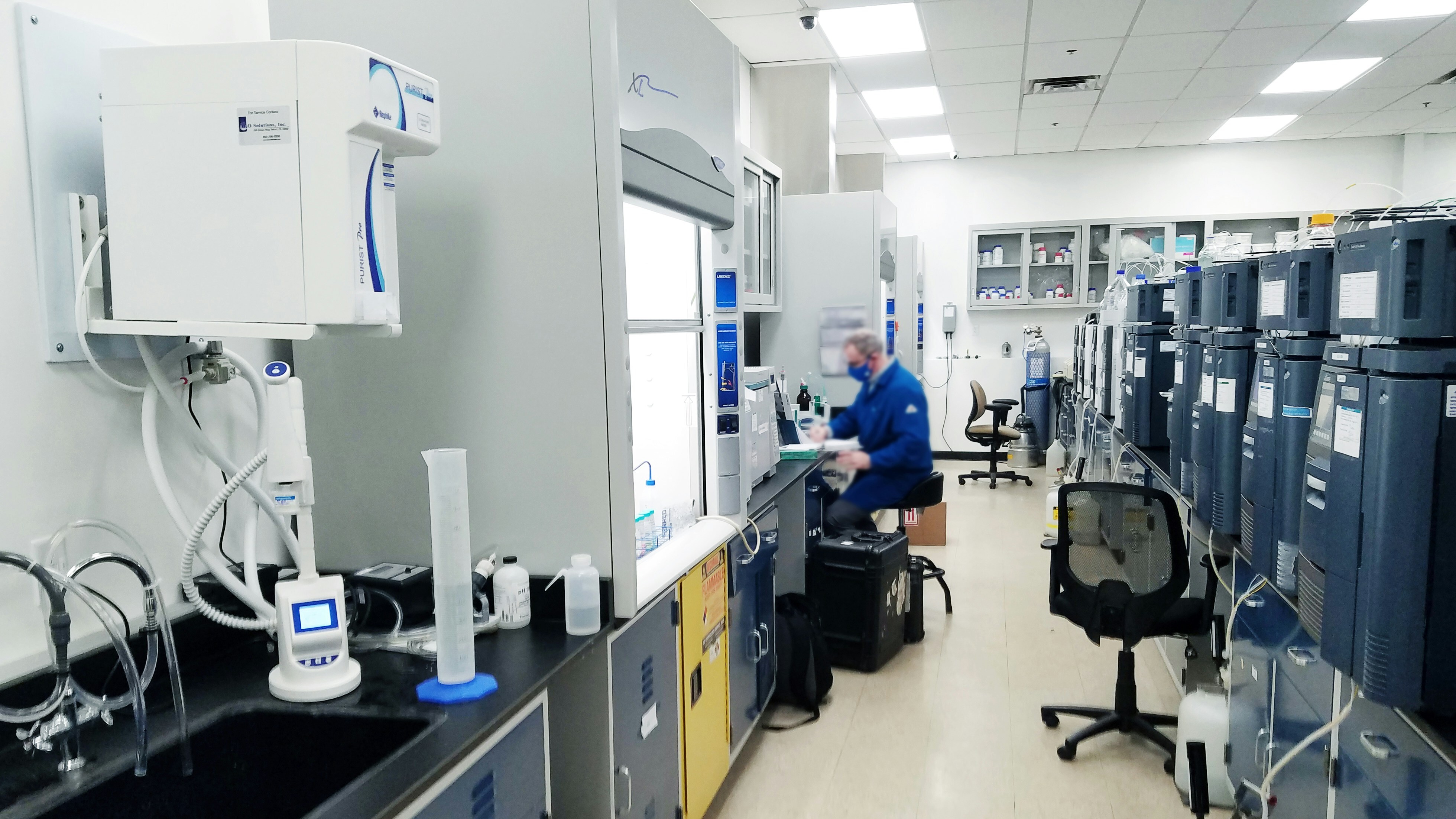
When it comes to laboratory work, chemical grades play a crucial role in determining the purity and suitability of chemicals for specific experiments. Whether you're conducting research in a university lab, performing quality control tests in an industrial setting, or analyzing substances in a pharmaceutical lab, choosing the correct grade of chemical is essential for obtaining reliable and accurate results.
In this post, we’ll break down the most common chemical grades and explain what they mean, their uses, and why they matter in the laboratory.
1. ACS-Grade (American Chemical Society Grade)
ACS-grade chemicals are the highest standard of laboratory chemicals, widely recognized for their purity and consistency. These chemicals meet the standards set by the American Chemical Society (ACS), which ensures that they have minimal impurities and are suitable for analytical and research applications.
Common Uses:
-
Analytical procedures
-
High-precision experiments
-
Titration and qualitative analysis
ACS-grade chemicals are ideal for labs requiring precise measurements and results, such as in pharmaceuticals, biotechnology, and academic research.
2. Reagent-Grade Chemicals
Reagent-grade chemicals are chemicals of high purity that are specifically designed for use in chemical analysis and laboratory tests. These chemicals are suitable for general laboratory work but may not meet the strict purity requirements of ACS-grade chemicals.
Common Uses:
-
Basic laboratory experiments
-
Chemical reactions and syntheses
-
Non-analytical applications
Reagent-grade chemicals are ideal for many standard laboratory procedures, such as in organic chemistry or when preparing solutions for various experiments.
3. HPLC-Grade (High-Performance Liquid Chromatography Grade)
HPLC-grade chemicals are designed for chromatography applications, especially when performing high-performance liquid chromatography (HPLC), a technique used to separate, identify, and quantify compounds in a mixture.
These chemicals are extremely pure and free of contaminants that could affect HPLC equipment or the accuracy of results.
Common Uses:
-
HPLC analysis
-
Separation of chemical compounds
-
Pharmaceutical testing
If you are working with sensitive chromatography procedures, using HPLC-grade chemicals ensures your tests are free from contamination, providing the highest possible accuracy and reproducibility.
4. USP-Grade (United States Pharmacopeia Grade)
USP-grade chemicals comply with the standards set by the United States Pharmacopeia (USP), ensuring that they meet strict requirements for use in pharmaceutical applications. These chemicals are tested for purity, potency, and consistency, making them safe for use in drug manufacturing and clinical applications.
Common Uses:
-
Pharmaceutical formulations
-
Drug testing
-
Medical applications
USP-grade chemicals are essential in ensuring the safety and efficacy of medications and other health-related products.
5. Food-Grade Chemicals
Food-grade chemicals are chemicals that are considered safe for use in food production and processing. These chemicals meet FDA (Food and Drug Administration) standards and are tested for safety to ensure they don’t pose a risk to consumers.
Common Uses:
-
Food additives
-
Preservatives and flavoring agents
-
Food processing and manufacturing
If you're working with food production or nutraceuticals, it’s important to use food-grade chemicals to ensure safety and compliance with regulatory standards.
6. Technical-Grade Chemicals
Technical-grade chemicals are the least pure of all chemical grades and are typically used for industrial applications rather than analytical or research work. These chemicals are often used in bulk manufacturing where extreme purity is not as critical.
Common Uses:
-
Industrial manufacturing
-
Agriculture (e.g., pesticides)
-
Cleaning and sanitation processes
While technical-grade chemicals may not meet the purity standards required for lab experiments, they are cost-effective and suitable for large-scale production.
7. Pharmaceutical-Grade Chemicals
Pharmaceutical-grade chemicals are similar to USP-grade chemicals, but they are specifically designed for use in drug manufacturing and must meet additional standards related to bioavailability and stability. These chemicals are highly regulated and must pass rigorous testing before they can be used in medicinal products.
Common Uses:
-
Drug production
-
Vaccine formulation
-
Clinical trials
Pharmaceutical-grade chemicals are essential for creating safe, effective medications and ensuring consistency in the final product.
8. Electrolyte-Grade Chemicals
Electrolyte-grade chemicals are specifically designed for use in batteries and energy storage systems. These chemicals must meet very high purity standards to ensure that they don’t introduce contaminants that could affect the performance or safety of batteries and other energy storage devices.
Common Uses:
-
Battery manufacturing
-
Energy storage applications
Electrolyte-grade chemicals are often used in lithium-ion batteries, supercapacitors, and other advanced energy storage systems.
9. Lab-Grade Chemicals
Lab-grade chemicals are chemicals that are of good purity for most general laboratory uses. These chemicals are typically not as pure as ACS-grade or HPLC-grade chemicals, but they are more than sufficient for routine experiments and standard procedures in many laboratories.
Common Uses:
-
General laboratory work
-
Non-analytical experiments
Lab-grade chemicals are ideal for a wide variety of basic laboratory applications, including educational settings and non-critical research.
Why Understanding Chemical Grades Matters
Selecting the right chemical grade is crucial for the accuracy and reproducibility of your laboratory results. Using a higher-grade chemical, like ACS or HPLC, ensures that you have the purity and quality needed for sensitive or high-precision work. On the other hand, technical-grade chemicals can be appropriate for industrial processes where absolute purity isn’t as critical.
By understanding the different chemical grades, you can make informed decisions about which chemicals to purchase, ensuring your lab runs smoothly and your research or production processes are successful.
Final Thoughts
Whether you're conducting research in a pharmaceutical lab, running HPLC tests, or working with industrial processes, knowing which chemical grades to use is essential for ensuring high-quality, reliable results. ACS-grade, HPLC-grade, reagent-grade, and other specialized grades are all designed to meet the specific needs of different applications.
Looking for high-quality chemicals for your lab?
Browse our wide selection of ACS-grade chemicals, HPLC solvents, and more at 949 Chemical today. Start Shopping Now!
